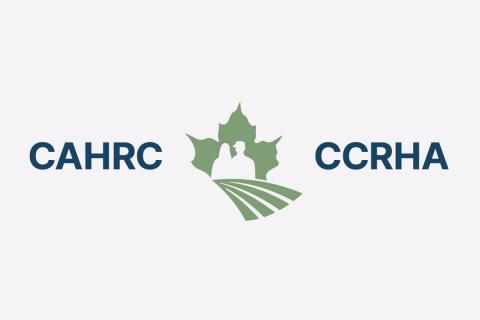The challenge of finding short-term employees
In the agriculture industry, whether you are a primary producer, agriculture-related business or industry organization, finding a reliable supply of labour can be more than challenging. The Canadian Agricultural Human Resource Council (CAHRC) has been studying this problem for many years to determine where possible solutions might lie.
A not-for-profit organization focused on addressing human resource issues facing agricultural businesses across Canada, CAHRC conducts labour market research and develops human resources supports for farm employers. They have also been investigating under-represented groups in agriculture as possibilities for strengthening the workforce – including young Canadians.
In response to addressing worker shortages, CAHRC launched Growing Opportunities, an initiative that included the Student Wage Placement Program (SWPP). It connects employers, post-secondary institutions and students through the Student Wage Placement Program (SWPP). The goal is to help employers connect with interested students in colleges, universities and trade schools and provide them with work experience directly related to their education. It can also engage students in non-agriculture disciplines, building awareness of career paths leading to agriculture after graduation. Nearly any Canadian business or not-for-profit organization in the agriculture industry is eligible to apply.
Getting creative to drive solutions
Delage Farms is a family owned and operated grain operation located near Indian Head, Saskatchewan. Maurice and Janet Delage, along with daughter-in-law Janel Delage, farm about 28,000 acres of wheat, canola and lentils. We spoke with Janel, Vice President of the Delage Farms, and Bunny Bailey who works as their administrator and accountant.
The Delages found out about the wage subsidy program by accident when contacting a reference for a candidate they had interviewed for a job. That particular employer had hired someone through the program and recommended they do the same. After researching this initiative online, Bunny forged ahead with their application. And their experience in working with CARHC has been very positive.
“The application was fairly straightforward, it was easy to understand and there was a quick turnaround time,” comments Bunny. “When our contract was complete, CARHC reminded me about what I needed to do to complete the process and get our funding, which we received promptly once we’d submitted the necessary documents.”
They were a bit discouraged, however, when they didn’t get much interest from summer students.
We haven’t had a lot of applicants,” Janel states. “Students don’t think a farm is a place you can have a summer job and that it would be really boring – that you’d just end up cutting the lawn all summer. They don’t understand what working on a farm is all about.”
Regardless, creating a unique summer student opportunity would provide a summer student in both 2022 and 2023 with valuable work experience that ultimately bolstered the farm’s presence in the community. The job involved helping with regular farm activities – like crop scouting – as well as focusing on social media and communications to promote the farm. This included assisting with planning, promotion and execution of the ‘Doolie Project,’ an annual community event hosted by Delage Farms in memory of son/husband Marc, that showcases the inner workings of a modern farm.
And word is getting out. Their efforts have built the bridges they were hoping to create because it’s looking up in terms of finding the seasonal harvest crew. Through the work done by the two previous summer students, as well as a Facebook page that was inspired by a CARHC workshop, they have 20 good resumes to choose from for the coming year for seasonal workers. Becoming more visible in the community has made a whole lot of difference.
A brighter future for the entire industry
2024 will be the third year that Delage Farms will hire a student to help them out over the growing season. Both previous employees proved to be very adept at handling the responsibilities of the scouting/communications position, so they’re looking forward to hiring another.
Janel can see the benefits of the wage subsidy program for the students they’ve hired as well.
“It gave them hands-on experience, which is just so invaluable,” she assets. “When people get first-hand knowledge about what happens on the farm, it makes them better employees in the industry, whether that’s in crop insurance, selling fertilizer or working in communications. They have opportunities to actually play in the dirt, operate equipment and get intimately involved in the farm experience. The two students we hired just took off running. Both gained a ton of confidence and strengthened their communications skills.”
She adds, “And it has impact beyond the farm gate. When people understand what happens on a farm, it gives them practical knowledge of how food production works. This becomes more and more important as there are fewer kids who grow up on farms. They can understand where a loaf of bread comes from and why we do what we do.”
“It’s a no brainer, actually,” Janel says, “And an easy decision. The subsidy covers a good portion of student wages, so it just becomes a time commitment. But I also get to help develop young people – it gives us a chance to mentor potential employees that we can hire when they’re done school.”
Initiatives like the Growing Opportunities SWPP help employers maintain a viable workforce, attract new talent to the field, and build understanding and awareness of potential Ag careers. Through the efforts of CAHRC and the support of their partners, huge strides are being made to ensure a healthy future for agriculture across Canada.
For more information on Growing Opportunities and the Student Wage Placement Program, contact Megan Lockhart, AgriTalent Project Coordinator mlockart@cahrc-ccrha.ca.
